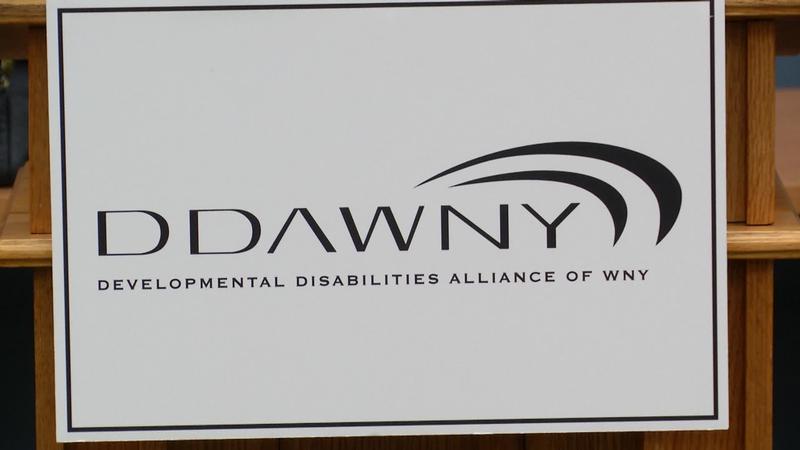Group homes for those with disabilities facing worker shortage
[anvplayer video=”5042978″ station=”998131″]
ROCHESTER, N.Y. (WHEC) — The Developmental Disability Alliance of Western New York (DDAWNY) says its own field is facing a severe shortage of workers due to an inability to recruit and retain direct support professionals. These professionals work in environments like group homes for those with disabilities.
News10NBC heard what DDAWNY is doing to help fill the employment gaps, and who they’re reaching out to for financial help.
DDAWNY represents 40 different disabilities agencies all over Western New York. They say they currently have 3,200 direct support professional vacancies.
The agency that many people living with disabilities depend on most has a severe shortage of essential employees.
CEO of Holy Childhood Center Donna Dedee says direct support professionals are some of the lowest-paid employees in the industry. DDAWNY is calling on Gov. Andrew Cuomo and other state leaders to act now.
"Funding for living wages is imperative for these front-line workers who care for the most vulnerable people in our community," Dedee said.

Unlike other workforce sectors, these organizations are told how much to pay their employees.
"Many other businesses can do things like shorten their hours or raise their prices to increase wages," Dedee said. "We can’t do either of these things. In many cases, we provide round-the-clock care. Our prices are set by the State of New York."
Dora lives in a group home in Rochester. She says the lack of direct support professionals affects the lives of everyone in the home.
"We do have to wait, especially for the people in the wheelchairs, because there’s not enough staffing to take care of us," she said.
Dedee says the industry mostly consists of women, and the work is disproportionately done by women of color. United Way of Rochester CEO Jaime Saunders concurs.
"Many of our non-profit staff make below poverty wages for work that is essential, and we count on every day of the year, not just during a global pandemic," Saunders said.
These organizations are now turning to local delegations in Albany to take some action.
"To go back to Albany, and fight to make sure there’s federal funding that we receive, and state funding, that we have more control over that goes towards wages so that we can lift all up and provide the services that individuals need," Assemblyman Harry Bronson (D-138) said.
DDAWNY states that in 2005 the average wage for a direct support professional was 33% above minimum wage. Today, it’s less than 2% higher.